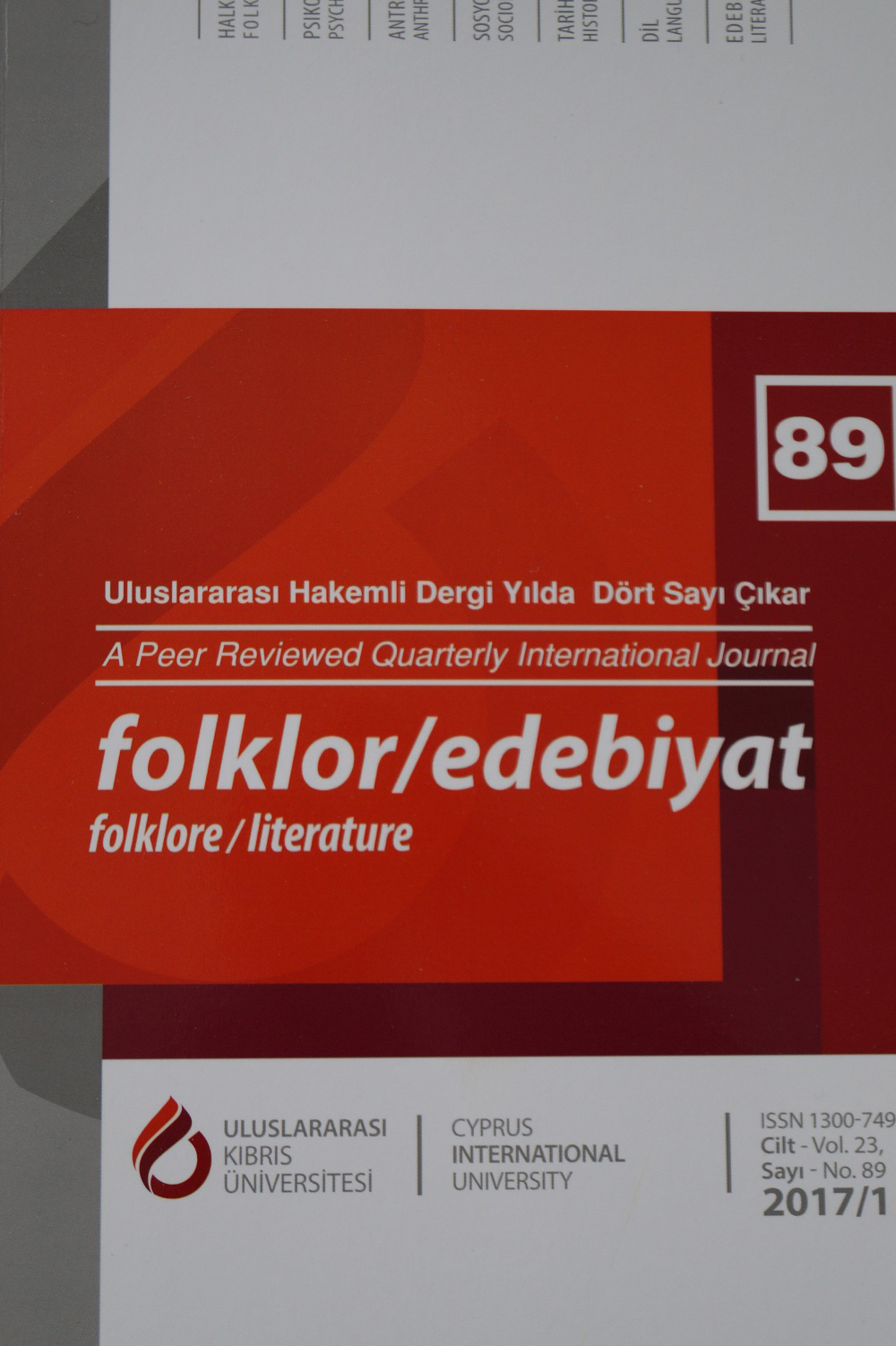
JOURNAL OF FOLKLORE/LITERATURE
Cyprus International University
DOI: 10.5897/UJ-FOLKLORE
Email: folkloredebiyat@ciu.edu.tr
About Folklore/Literature
Scope
The Journal of Folklore & Literature is a Cyprus International University publication that publishes original work in the fields of folklore, literature, anthropology, language, history, sociology, and psychology that are based on analysis and research conducted in accordance with the scientific method. The scope of the journal includes a variety of different pieces that range from original theoretical works to original research and analyses; to documents and interpretations; to applications or application based works; to educational works, meta-analyses, critiques, evaluations, and book reviews.
General Principles
The Journal of Folklore & Literature Management (Preliminary Evaluation Committee, Publication Committee, and Editor) checks all submissions for plagiarism by submitting articles to the Ithenticate® plagiarism detection site prior to evaluating any of the journal articles. Basic publication principles include article originality, high potential to receive citations, and suitability with academic standards. The scientific, ethical, and legal responsibilities for articles published with DOI registration belong to the article authors. Papers submitted in the field of psychology must have ethical committee approval, especially for articles being submitted as original research that contain human participants and/or animal subjects. It is imperative that articles sent to Folklore & Literature have not been published anywhere else and that they are structurally appropriate with the instructions indicated below.
Articles can be written in either in Turkish or English. Scientific articles should be no more than 40,000 characters (without space); analysis/discussion/critiques should be no more than 20,000 characters (without space); and media, book review/critiques should be no more than 5000-9000 characters (without space). Authors whose articles are accepted for publication will receive a hard copy of the journal and a pdf of their article. No royalties will be paid to the author. Published articles can be published elsewhere as long as it stated in the masthead.
Scientific - Academic Principles
The goal of a scientific article is to disseminate its findings acquired from research conducted by experienced field researchers, to the larger scientific community. Scientific ethics is the starting point of a study. TUBA (Turkey's Scientific Academy) defines ethics as "the field of thought where people contemplate on the foundations of living a moral life and based on these foundations, they differentiate between right and wrong, search for accurate behaviors, and develop theoretical and scientific tools that can be applied". This perspective is the basic principle underlying article acceptance for the Journal of Folklore & Literature. The journal publishes articles that are in accordance with TUBA and TUBITAK (The Scientific and Technological Research Council of Turkey)'s publication principles.
Articles with exceptional academic quality that are accepted to the journal should contain an Introduction, Methods, Results, and Discussion section. In the introduction, a clear and concise description of the problem the article is covering should be given. In the methods section, how the problem was approached should be described in detail and the choice of scientific method used should be explained and justified. In the results-discussion section, examination of the findings via the scientific method should be described and suggestions for future research as well developmental implications should be offered
Peer Review Process
Articles sent to the journal are initially examined and evaluated according to their appropriateness with the journal's publication principles and publication rules as determined by CIU's Preliminary Evaluation Committee. All other technical additions/changes that are beyond this Committee's jurisdiction are done in collaboration with the author(s). Upon receiving approval from the Publication Committee and Editor, the article is sent to two expert reviewers in the associated field. During the evaluation period, the article will go through a blind review process. In the event there is a conflict between reviewer's final reports, the article will either be sent to a third reviewer or a decision will be made by both the Publication Committee and Editor. Authors are required to make the suggested or necessary corrections during the evaluation process. In the event where authors disagree with the suggestions made, they need to indicate this with justifications. The final decision is made by the Publication Committee. Articles sent to the journal are not returned.
